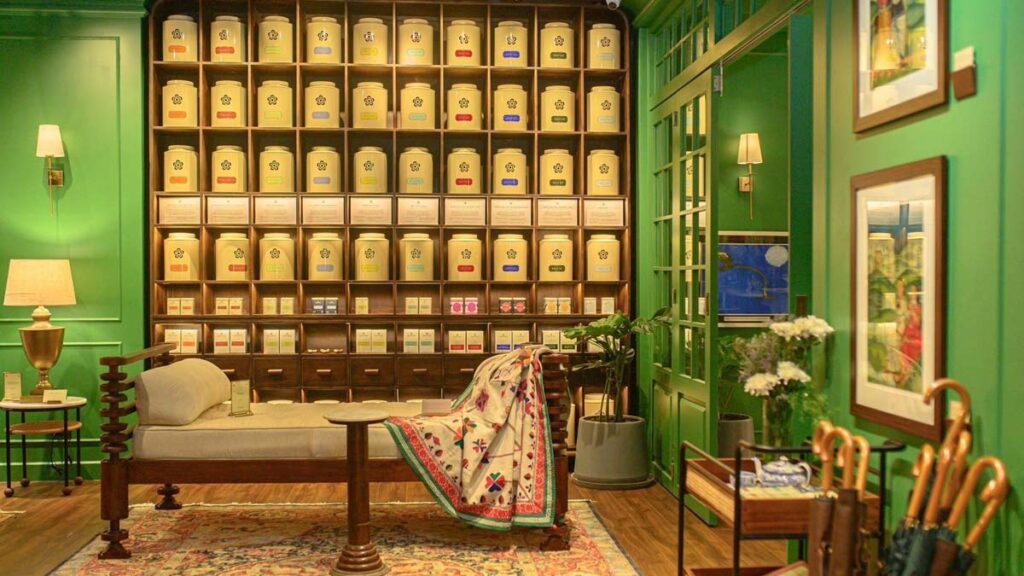Bungalows flourish within Kolkata’s Taj Bengal, home to tea lovers and carpet keepers. A 160-year tradition of making quality organic tea has reached its zenith in Makaibari’s first experiential store, presented as a holistic lifestyle experience. From exquisite teas to unique carpets (Luxmi Tea’s own Obee Tea Carpets), silver teapots, plantation furniture, a living room that oozes old world charm, and a naturally luxurious dining experience, our bungalows have it all. Equipped. It is a typical historical luxury property.
Walnut wood tones, brass accents, handcrafted furniture, a fireplace, and a tea library create a warm and homely feel. At the experiential store, you can sample handcrafted tea cocktails supervised by mixologist Yandrup Lama. Adding a touch of culture to the interior, Kalighat paintings commissioned by Anwar Chitrakar, son of the famous Amar Chitrakar, adorn the walls and pay homage to the Makaibari mansion.
Rudra Chatterjee, Chairman of Obiti and Managing Director of Lakshmi Tea Group, says Makaibari is more than just a tea estate. It embodies the philosophy of living in harmony with nature and heritage. “This store reflects our vision to create a space where visitors can enjoy the timeless elegance of handcrafted luxury goods, from tea to textiles and furniture.Tradition, craftsmanship, We invite you to experience the essence of Luxmi Group through this cohesive community environment.”
Makaibari Tea Estate was acquired by Lakshmi Tea Group in 2014 and is one of the few brands in which workers own a stake. Rudra Chatterjee says this is the first tea to be certified organic by the United States Department of Agriculture (USDA). The tea, which is picked on the moonlit night of June 22 on the summer solstice, is the most expensive tea in the world, selling for 1.1 million rupees per kg. Rudra Chatterjee explains that the best time to pick is June 22, which is Darjeeling’s longest, wettest and hottest day, when the plants are resting. It is said that moonlit nights make it easier for farm owners to pick tea.
His grandfather, PC Chatterjee, was one of India’s earliest tea growers, a movement that sought to regain control through tea cultivation by independent farmers. Having a piece of land in his name in Tripura, he started cultivating tea on his own without any governing body or advisors from London. This vision brought Luxmi Tea to life.
Other members of the Indian freedom movement, Assamese and Bengali students who also rebelled against British rule, joined his company, then called Indian Tea and Provisions.

